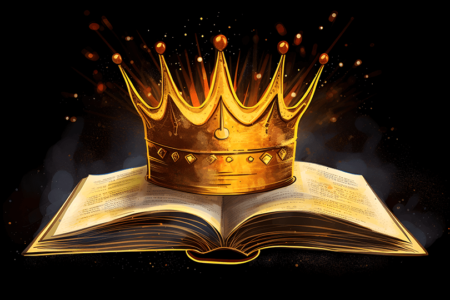The Jewishness of Peter
How the apostle Peter depended on the Tanakh in his writings
Newsflash: The apostle Simon Peter was not a Roman Catholic. He did not consider Rome his homeland, and he certainly did not understand himself to be the founder of anything like the papacy.
The man called Simon Peter was Jewish, both religiously and ethnically; and when his peers addressed him, they would have called him Shimon, not Simon.
Over the centuries, the church’s appropriation of Jesus and the apostles has muddied the waters of truth, leading many professing Christians to forget that Christianity began with Judaism; and the New Testament writers relied heavily on the only Scriptures they had—the Tanakh (Torah, Prophets, and Writings)—to teach about God and the Messiah.
The Source of Revelation
If you had asked Peter to quote Scripture, he would have quoted the Tanakh, what we call the Old Testament. In fact, Peter drew from the Tanakh when he answered Jesus’ question, “Who do you say that I am?” (Mt. 16:15).
Peter took his answer straight from Psalm 2, which reads, “The rulers take counsel together, against the LORD and His Anointed [Messiah]. . . . ‘You are My Son, today I have begotten You.’ . . . Kiss the Son, lest He be angry, and you perish in the way” (vv. 2, 7, 12). Peter told Jesus, “You are the Christ [Messiah], the Son of the Living God” (Mt. 16:16). That statement forms the very foundation of the church (v. 18).
Jesus responded, “Blessed are you, Simon Bar-Jonah, for flesh and blood has not revealed this to you, but My Father who is in heaven” (v. 17). Peter was blessed for two reasons: (1) The Father revealed to him the Son he had read about in the Scriptures, and (2) Jesus affirmed what the psalmist had said: “Blessed are all those who put their trust in Him” (Ps. 2:12).
It is possible Peter learned a lesson that day about reading Scripture. Flesh and blood never have been the source of revelation. Revelation comes from God, as an ancient petition from Psalm 119 says: “Open my eyes, that I may see wondrous things from Your law” (v. 18).
Later, Peter wrote, “No prophecy of Scripture is of any private interpretation” (2 Pet. 1:20). Why? “For prophecy never came by the will of man, but holy men of God spoke as they were moved by the Holy Spirit” (v. 21). God is the One who spoke, and God knows better than anyone what He meant by what He said. This fact is crucial to understanding how Peter used the Old Testament.
Peter’s Sermons in the Book of Acts
While the New Testament unapologetically exposes Peter’s assertiveness, overconfidence, and sometimes cowardice (Mk. 8:32; 14:29–31, 72), it also records the transformation of this Israelite who demonstrated chutzpah (gumption) while doing God’s work.
Even prior to the outpouring of the Holy Spirit at Pentecost (Shavuot), Peter used the Old Testament impressively. For example, he found Judas’s betrayal of Jesus to be so monumental that he noted how the Holy Spirit even foretold of it way back in King David’s day (Acts 1:16–20). After the Holy Spirit took ownership of Peter at Pentecost, this “uneducated” Jewish man (4:13) courageously demonstrated a knowledge of the Tanakh that only God could have inspired.
When the apostles began speaking in foreign languages as a reaction to the Spirit’s outpouring and became a source of derision in Jerusalem, Peter went to Joel 2:28–32 to rebuke the mockers (Acts 2:14–21), as if to say, “Don’t you know that the prophet Joel said things like this would happen in the latter days? Do not mock that this is happening here.”
Peter also mentioned Joel’s cosmic signs (the sun turning dark, the moon turning to blood “before the coming of the great and awesome day of the LORD,” v. 20), indicating he was not suggesting a complete fulfillment of Joel’s prophecy was taking place (vv. 19–20). Afterward, Peter boldly proclaimed that the Scriptures foresaw the Messiah’s resurrection and ascension to the Father’s right hand (vv. 22–36).
The result? On that very day, the men of Israel were cut to the heart; and about 3,000 repented of their sins and were saved and baptized (vv. 37–41). That number mirrors the number of Israelites who perished on the day the Law was given on Mount Sinai (Ex. 32:28).
Peter later preached at the Temple after healing a man in Jesus’ name. He proclaimed that Jesus was the prophet Moses told Israel to look for when Moses said, “The LORD your God will raise up for you a Prophet like me from your midst” (Dt. 18:15), and that Israel’s repentance would usher in the “times of refreshing” (the Millennial Kingdom). He emphasized that the Messiah’s time in heaven prior to the “restoration of all things” was also spoken of “by the mouth of all His holy prophets” (Acts 3:11–26).
Peter, along with the apostle John who was with him, was arrested for this sermon. Then he boldly told the Jewish leaders that Jesus was “the stone which was rejected by you builders, which has become the chief cornerstone” (4:11; cf. Ps. 118:22; Isa. 28:16).
Again, the influence of Psalm 2 appeared when Peter and John were released. They joined their companions in praising God and declaring the psalm’s partial fulfillment after reporting everything that had happened at the Temple (Acts 4:23–28).
When God sent Peter to the Gentile Cornelius, Peter understood from the prophets that through the Messiah’s name, “whoever believes in Him will receive remission of sins” (10:43). Isaiah had said, “Behold! My Servant. . . . I have put My Spirit upon Him; He will bring forth justice to the Gentiles” (Isa. 42:1).
And who could forget Isaiah 53? It says, “After he has suffered, he will see the light of life and be satisfied; by his knowledge my righteous servant will justify many, and he will bear their iniquities” (v. 11, NIV). Undoubtedly, this knowledge formed the basis of Peter’s position at the Jerusalem Council, when he insisted that Gentiles should not have to convert to Judaism to be saved (Acts 15:7–11).
Letters to the Church
Peter also contributed in his service for the Lord by writing two epistles, 1 and 2 Peter, that became part of the New Testament. In them, he clearly demonstrated his knowledge of the prophets:
The prophets have inquired and searched carefully, who prophesied of the grace that would come to you, searching what, or what manner of time, the Spirit of Christ who was in them was indicating when He testified beforehand the sufferings of Christ and the glories that would follow (1 Pet. 1:10–11).
The prophets, he concluded, were “ministering the things which now have been reported to you” (v. 12). Peter was heavily influenced by Isaiah, Psalms, Proverbs, and the Torah (especially Genesis).
The apostle Simon Peter was not a Roman Catholic. He could not have been more Jewish, and it’s a shame that organized Christendom has done more to separate Peter from his Judaism than to show how he taught about Jesus in an entirely Jewish context.








One of the themes of this issue is the importance of the Old Testament. I totally agree with this importance. I love the study of the Old Testament and the principles it teaches. We find the seven feasts in the Old Testament and they represent God’s timetable. The first four have been accomplished in the death, burial and resurrection of Christ and Pentecost. The last three will concur at the Great Tribulation Period (Rosh Hashanah), the coming of Christ (Yom Kippur) and the wedding feast of the lamb (Sukkot).
I used the Old Testament to equate marriage to our relationship to God. In my paper – One Flesh – I point out a few mysteries.
One mystery hidden in plain sight is found in the man and woman. I see them as representative of the New and Old Testaments. God’s words were, “Let Us make man in Our image, according to Our likeness.” This indicates that all of the characteristics of the Trinity was placed in Adam and through him all of humanity. This includes the gifts of the Spirit. These characteristics vary in each of us. Some are more dominate than others, but they are all there to some degree.
A man’s basic drive is in accomplishment, the next challenge. At an early age he is playing games that stress challenges. Competition is the avenue he chooses and the need to be better than the other guy. His need for relationships is very minimal. His need for a relationship is to build himself up. It makes him feel better about himself. It is a great avenue to display his greatest Godly characteristic of leadership. Some of the by-products of leadership are guidance, discipline and challenges. Therefore, the man is a type or representation of the Old Testament. The Old Testament tells us who God is and what He expects of us. It is His guidance, discipline and challenge to us.
A woman’s basic drive is to build relationships. From her early childhood she is seen playing with dolls, setting up relationships between figures that represent men, women and children. It is a great avenue to display her greatest Godly characteristic of love. Women tend to be more emotionally involved within the relationships they build. These traits are the things that draw us closer to our mothers and wives. This is the essence of the New Testament. It shows us the love of God through the sacrifice of Christ. Only then do we find mercy – a byproduct of love – and are able to have a relationship with God.
Both Testaments are needed to find completion. The Old Testament gives us the law which leads us to the realization of our failures. Then God’s mercy is revealed in Christ. What good would mercy be if there is no condemnation through the law? What good would the law be for the sinful if there was no mercy? This principle is seen again in the ministries of Elijah –focused on the law – and then Elisha – focused on mercy and grace.
It is not surprising that Adam was created first. It was necessary for the law to be first. Then Eve came second, out of the man, from his rib. So mercy proceeded from the law to bring new life. Wow! Mercy and love can’t be separated from the law. They are necessary parts to each other. The relationship is strong and the one is useless without the other.
If you find this useful, please pass it on to the other authors in this issue.